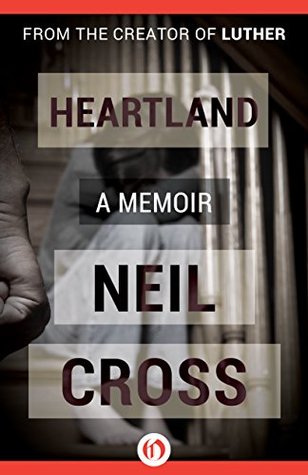Listener – July 30, 2005

One morning in 1969, Neil Cross’s mother took him out in his pram with the intention of ending both their lives by stepping into the traffic on a busy road. However: “She looked down at me, in the pram. I was tiny and helpless, she said, a baby with my name and my eyes, wriggling, wearing clothes she had knitted, and she couldn’t kill me. So she wheeled me home, and we lived.”
A memoir, I used to think, was a shortish work describing a particular period or aspect of writer’s life; the best I’ve read, Simone de Beauvoir’s A Very Easy Death, was an unflinching account of her mother’s dying. Cross, however, has structured his 323-page “memoir”, Heartland, like one of his novels. An account of his childhood and adolescence in Bristol and Edinburgh, it has the verve of fiction and the vulnerability of autobiography.
His parents, Alan and Ed Gadd, have been unhappily married for some time. They have both had extramarital affairs, but Neil, the youngest of their four children, does not feel unwanted. He does, however, observe the consequences of his parents’ infidelities. At four years old, he sees his father beaten by one of his mother’s lovers in the Gadd living room. “I cowered in the far corner, behind the TV. I screamed into my hands. I watched the strange man punching my dad … A spray of Dad’s blood dried high on the living-room wall, near the comic statuette of a knight with a drooping sword. On the base of it was inscribed: Once a King Always a King, but Once a Knight is Enough.”
A year later his mother walks out; two years on, she comes back to take him to Edinburgh. With her is Derek Cross, whose surname Neil Gadd willingly accepts. Derek becomes the boy’s formative influence – he reads to him and buys him books, they watch movies, listen to music and go tramping together. But Derek, a South African white supremacist, is what Cross calls a “peculiar” man. He has been married five times before, and has a son with whom he has no contact. He regularly beats the dog he gave Neil, and becomes distant and irritable. He decides the family needs religion. He tries several churches, but finds fault with them all, until a couple of Mormons turn up on the doorstep. The Church of the Latter Day Saints it is then. Eventually Derek is ordained a Mormon bishop, but he runs off with church funds and, ironically, a black woman.
By writing this nicely paced memoir, Cross may be exorcising the ghost of the stepfather he loved, then loathed. There are other ghosts – such as his birth father’s second wife, Margaret, who has two sons of her own. She resents Neil spending school holidays with them: “Margaret looked at me through narrow eyes and I felt awkward and ashamed.” But it’s not all tears and fears at bedtime. We get a concise history of the Church of the Latter Day Saints and its founder Joseph Smith, “another fraud” – The Book of Mormon is said to contain similarities to a novel called View of the Hebrews, which preceded it.
Cross’s Booker-longlisted novel Always the Sun tells of a man hell-bent on protecting his teenage son from schoolyard bullying – which Cross was also victim of. The novel includes a sustained, nasty bashing and a suicide. In an essay entitled “That Difficult Fourth Novel” (published in the Listener last year), Cross confessed that when his first child was born in London he became fixated with his son’s safety. He carried a lock-knife and secreted weapons throughout the family home, ready to kill anyone who would hurt him. Anybody who thought to.
Thankfully, the paranoia was temporary. These days, Cross is a “happily-married” father of two boys, living in Wellington. Heartland ends with a contemplation of his first-born son: “He looked at me with the absolute gravity of his love.” When Cross was 12, he says, he had a vision of the boy in a dream, from which “I awoke in stark terror … He looked at me solemnly, his face bifurcated by darkness.”